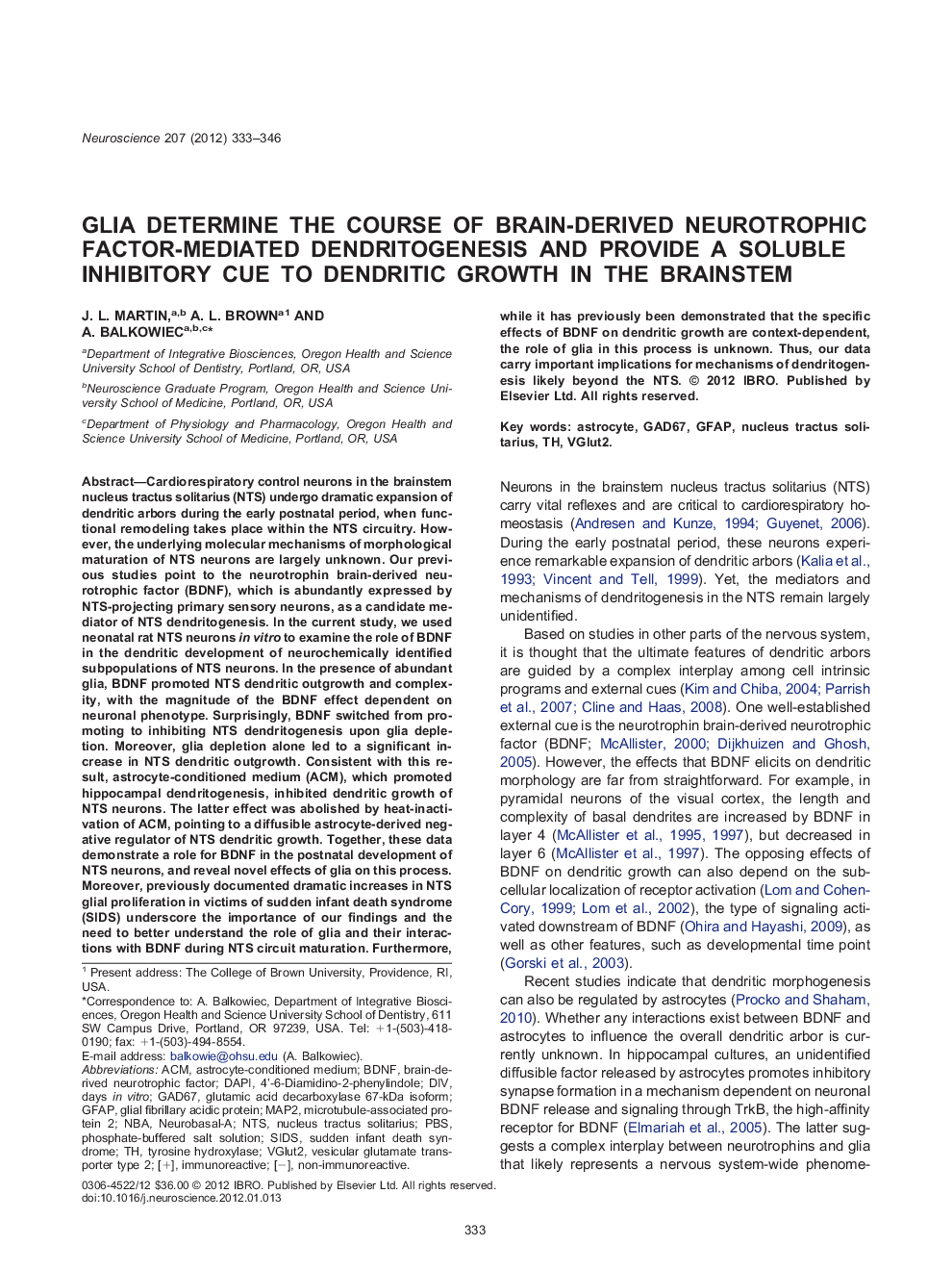| Article ID | Journal | Published Year | Pages | File Type |
|---|---|---|---|---|
| 4338601 | Neuroscience | 2012 | 14 Pages |
Cardiorespiratory control neurons in the brainstem nucleus tractus solitarius (NTS) undergo dramatic expansion of dendritic arbors during the early postnatal period, when functional remodeling takes place within the NTS circuitry. However, the underlying molecular mechanisms of morphological maturation of NTS neurons are largely unknown. Our previous studies point to the neurotrophin brain-derived neurotrophic factor (BDNF), which is abundantly expressed by NTS-projecting primary sensory neurons, as a candidate mediator of NTS dendritogenesis. In the current study, we used neonatal rat NTS neurons in vitro to examine the role of BDNF in the dendritic development of neurochemically identified subpopulations of NTS neurons. In the presence of abundant glia, BDNF promoted NTS dendritic outgrowth and complexity, with the magnitude of the BDNF effect dependent on neuronal phenotype. Surprisingly, BDNF switched from promoting to inhibiting NTS dendritogenesis upon glia depletion. Moreover, glia depletion alone led to a significant increase in NTS dendritic outgrowth. Consistent with this result, astrocyte-conditioned medium (ACM), which promoted hippocampal dendritogenesis, inhibited dendritic growth of NTS neurons. The latter effect was abolished by heat-inactivation of ACM, pointing to a diffusible astrocyte-derived negative regulator of NTS dendritic growth. Together, these data demonstrate a role for BDNF in the postnatal development of NTS neurons, and reveal novel effects of glia on this process. Moreover, previously documented dramatic increases in NTS glial proliferation in victims of sudden infant death syndrome (SIDS) underscore the importance of our findings and the need to better understand the role of glia and their interactions with BDNF during NTS circuit maturation. Furthermore, while it has previously been demonstrated that the specific effects of BDNF on dendritic growth are context-dependent, the role of glia in this process is unknown. Thus, our data carry important implications for mechanisms of dendritogenesis likely beyond the NTS.
Graphical Abstract••• Figure optionsDownload full-size imageDownload high-quality image (174 K)Download as PowerPoint slideHighlights▶In the presence of abundant glia, BDNF promotes dendritic outgrowth and complexity of brainstem neurons in a phenotype-selective manner. ▶Upon glia depletion, BDNF switches from promoting to inhibiting brainstem dendritogenesis. ▶Glia depletion alone leads to a significant increase in dendritic outgrowth of brainstem neurons. ▶Astrocyte-conditioned medium (ACM) inhibits dendritic outgrowth of brainstem neurons while promoting hippocampal dendritogenesis. ▶The effect of ACM on brainstem dendritogenesis is abolished by its heat inactivation.
